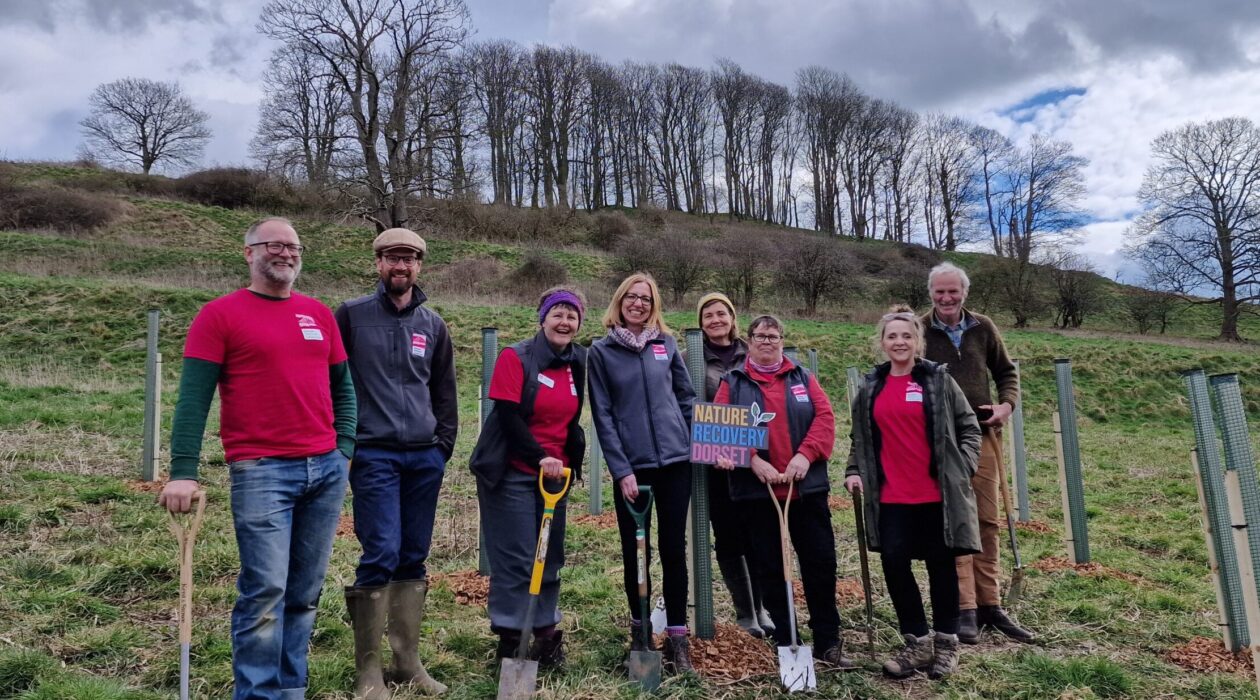Chapter 7.4. Ways of Working
This chapter sets out principles by which the National Landscape Partnership operates.

This chapter sets out principles by which the National Landscape Partnership operates.

Abiding by these principles will encourage coherent, coordinated activity to conserve and enhance the natural beauty and special qualities of the National Landscape and encourage equitable access to them.
This chapter relates to the community and organisational environment in and around the Dorset National Landscape, rather than directly to its special qualities and natural beauty.
· The Dorset National Landscape is home to over 76,000 people: this is a considerable potential resource for activity which contributes towards the conservation and enhancement of natural beauty.
· Environmental data provision and curation is supported by strong organisations in Dorset; local datasets are frequently higher quality than national.
· The National Landscape Partnership occupies a position of trust and can act as an ‘honest broker’ bringing various interests together for project development or information provision.
· The National Landscape team has been building relationships with underserved communities and trusted representative organisations through initiatives such as FLAVOURS, Stepping into Nature and Nature Buddies, and has a strong track record in managing collaborative projects in practical delivery and engagement.
· Exemplar partnerships exist in and across the National Landscape facilitating the delivery of the aims within this management plan. These include Dorset Coast Forum, Dorset Food & Drink, Dorset Cultural Partnership, Dorset Tourism Association, Wild Purbeck Partnership and the Dorset Local Nature Partnership.
· Many people experience barriers to getting involved in activities related to their local environment. Barriers are both real and perceptual, both limit the extent to which those people can experience and benefit from the special qualities of this place.
· Financial pressures are forcing Local Authorities to reduce staff numbers, meaning fewer staff cover a larger area; a loss of skills and experience and reduced capacity for engaging in new initiatives.
· Financial pressures on the wider delivery partnership have meant that there is reduced capacity to engage in new partnerships or initiatives; there is also reduced capacity to effectively engage community stakeholders.
Local Authorities, Town and Parish Councils (including the Association for Town and Parish Councils), Catchment Partnerships, Community Partnerships, Dorset Environmental Record Centre, Dorset History Centre, Kingston Maurward College, Natural England, National Trust, Dorset Museum and Art Gallery, arts, heritage and culture partners.
All relevant people are actively involved in key decisions affecting the National Landscape, ensuring that diverse voices shape its future. Inclusive participation and co-creation of initiatives foster lasting positive changes supported by the wider community.
• Broaden representation in National Landscape Partnership decision-making, actively including voices from underserved communities.
• Seek to co-design activities with the intended beneficiaries
• Engage with underserved communities, building relationships through trusted intermediaries and co-creating activities.
• Support activities which facilitate new entrants into farming, forestry, conservation and other nature-based sectors
Decisions are supported by the best available information, understanding, good practice, tools, and expertise. Robust research, assessment, and conservation practices guide effective management and positive change within the National Landscape.
• Promote research and deeper understanding of the National Landscape’s special qualities, landscape elements, and marine environment.
• Promote the use of landscape and seascape character assessment and nature recovery opportunities to shape decisions.
• Promote understanding and application of conservation resources and tools for the natural and historic environment.
• Promote training in, and use of, conservation skills to conserve and enhance landscape character.
• Support the development and use of key information resources, repositories, and their managing organisations.
• Support the understanding of the interconnectedness of landscapes, spaces where natural and human systems interact.
• Seek win-win solutions for people, nature and heritage.
Ongoing monitoring informs adaptive management, ensuring that strategies are effective in achieving desired outcomes. Continuous evaluation and adjustment of methods ensure progress towards objectives within the dynamic National Landscape.
• Establish and maintain monitoring systems to track progress toward National Landscape Management Plan objectives.
• Regularly review monitoring data to assess the effectiveness of strategies and adapt approaches as needed.
• Share monitoring results with stakeholders to promote transparency and collaboration.
• Use monitoring data to inform future planning and decision-making processes.
• Support citizen science engagement and the activities and tools that support it, such as volunteer coordination, training and equipment.
Strong partnerships across sectors enable effective delivery of National Landscape objectives, maximising resources and expertise. Collaborative approaches foster innovation, shared ownership, and sustainable outcomes for the landscape and its communities.
• Develop and strengthen partnerships between public, private, and voluntary sectors to deliver National Landscape objectives.
• Coordinate activities across organisational boundaries to achieve integrated landscape management.
• Share resources, knowledge, and expertise to maximise impact and efficiency.
• Support community-led initiatives that contribute to National Landscape objectives.
• Support cultural initiatives that contribute to National Landscape objectives.